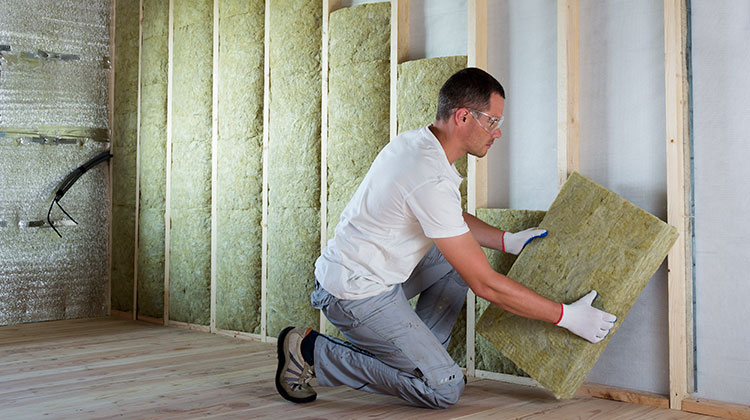
Most state and local building codes include minimum insulation requirements. Therefore, insulating your home is not something you can ignore. You can go above the minimum insulation requirements to make your home more energy-efficient. Insulating your home helps regulate the air that flows into and out of your house. You can achieve this by choosing the best insulation materials. Below is an extensive guide for choosing quality insulation materials for your new home.
Know Where to Insulate
Knowing where you need to insulate will help you choose quality insulation materials. If you are building a home for the first time, you will need help determining areas to insulate. Your contractor can help you. You can also conduct extensive personal research or contact an insulation expert. In addition to knowing where you need to insulate, you should also find out the recommended R-values for the specific areas. Various insulation materials have different R-values. Therefore, knowing where to insulate and the recommended R-value will help you choose. Examples of areas in a home that need insulation are; floors, exterior walls, basements, attics, crawl spaces, and interior walls. Just a warning though, if you’re working on a pretty old house, be careful wading through those walls and ceilings as they still might contain traces of different kinds of asbestos.
Review the Types of Insulation
Once you know where you need to insulate and what is required, the next step is to review the types of insulation. The point is to know the available options, their performance characteristics, and limitations before choosing. The most common building insulation materials are; spray foam, fiberglass, and cellulose. When reviewing these materials, you must look at their specific qualities. Below are some questions you should ask when reviewing the types of insulation;
- Are the materials fire-resistant?
- What is their R-value?
- Are the materials safe or toxic?
- How easily can you replace the materials?
- How affordable is the material?
- How easy is it to install the insulation?
Answering the questions above will help you choose the best insulation material for your home. It will also give you adequate information to determine which material will be ideal for specific areas.
Base Your Choice on the R-value
Your choice of insulation material for your new home should be based on the R-value. R-value refers to the measure of resistance to heat flow through an insulation material. It can also be explained as the rating system for insulation materials based on their insulating properties. The R-value usually differs from one insulation material to another. Therefore, insulation materials with higher R-values offer better performance than ones with lower values. The materials’ thickness and density affect their R-value. Basing your choice on the R-value will help you make the right decision.
Consider the Climatic Conditions in your Region
Considering the climatic conditions in your region will also help you choose the best insulation materials. The region where you are building your home will influence the insulation properties required. Some climates require high R-values while others do not. Therefore, the climate in your area will determine the type of insulation material you choose. It is worth noting that spray foam is a versatile insulation material suitable for different climatic conditions.
Consider your Home Design
Your home design will also play a significant role in your choice of insulation material. For instance, if your home is intricately designed, an insulation material like spray form will be easiest to install. Spray foam is great for insulating corners and edges. Additionally, some materials are not ideal for specific home designs because they are too firm and hard to bend. Your home’s design will also influence the elements it is susceptible to. Therefore, you can choose quality home insulation materials by considering your home design.
Find the Right Insulation Company
Finally, the insulation company will determine the quality of your insulation material. Therefore, you must be keen when looking for an insulation company. Below are some essential factors to consider when finding the best insulation company;
- Experience- always go for a company with ample experience with the best quality insulation materials.
- License and insurance- an insured and licensed insulation company would also be good. You can rest assured that the company follows the best practices.
- References- you can also ask for references when looking for the best insulation company.
Key Takeaway
Choosing the right insulation material for your new home is not something you should take lightly. Your home’s insulation will influence its comfort, safety, energy consumption and sustainability of the building materials. Working with a contractor will help you make the right choice. Researching and understanding the insulation materials market and the various options will also come in handy.
related store
TBD

Leave a Reply